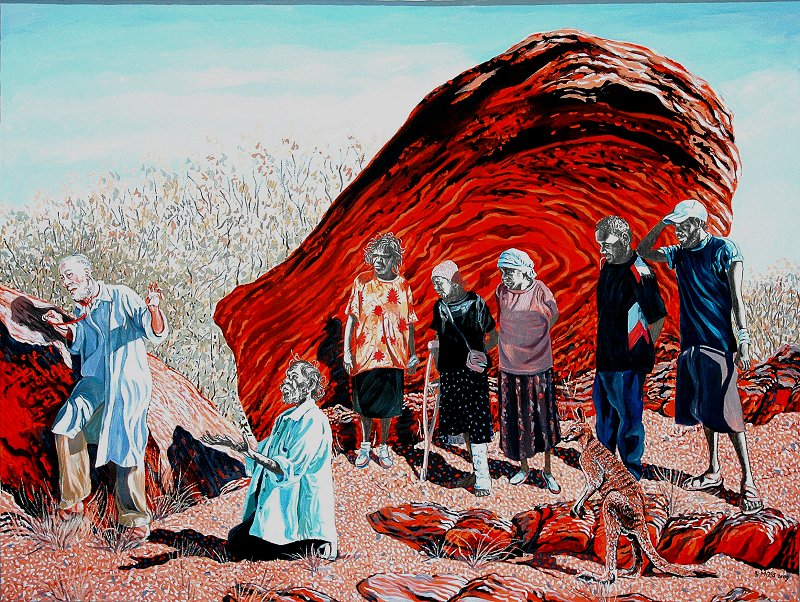The Refugee people sent me a young mother today with her four-year-old child who had a cough.
She said: “Interrupter, please.”
I looked at her, not understanding.
“Needing interrupter. Not English.”
I preferred to have a go without an interpreter.
“You tell me, I listen” – I said.
“My child much coughing.”
I listened to the chest of the vivacious child whose smile would melt an official from Immigration and Border Protection. I looked at her throat, I felt her glands. She was well, simply suffering from a snot attack. I ordered an anti-snotic.
I addressed Mum: “From what country.”
“Iran.”
“Salaam.”
A look of surprise. A brilliant smile.
I hadn’t picked her nationality. Her peasant blouse, embroidered with edging of magenta and primrose, somehow made me expect she’d be Hazara. That and her creamy skin. Wrong.
“Are you a Permanent Resident?”
A shake of the head. “Commentary Detention.”
“Are you on a Bridging Visa?”
“No. Commentary. Not visa. Commentary Detention.”
“Ahh… community detention?”
Nodding, a smile, we two are doing well despite the lack of an interrupter. But the smile empty of joy.
“My husband, the police, make shee – you know, shee?” The young woman waves her hand in a whipping movement. “Shee. Sixty times, they make shee.”
The woman pulls out her phone, shows me a photo: an adult lies face down on a narrow bed. The creamy skin of a broad back, fine scarlet streaks, the skin must have been lashed with wires.
“They do this before five years. We are not marry, he is boyfriend. I have baby” – she points to her belly – “They tell, ‘You wait, you come after baby, you also sixty shee.’”
The young woman’s pregnancy approached its end, she was summoned to the police station, but fled here, arriving four years ago – pre-Rudd solution.
“My mother, police tell her ‘where is your daughter?’ Mother tell, ‘daughter in Australia.’
They say, ‘No is hiding. Is in Iran. Must come to police station, have shee.’ They call mother many times. She very scare.”
The daughter appears to believe full well the police intend to keep their promise.
So, the boat. Detention at Curtin, then in South Australia. ‘My baby, not Iran.” The smile, this one half-charged: “Born Darwin.”
Her visa is not permanent resident.
Her visa is not bridging.
Her visa is not.
She is community detention.
What are we that we might send her back?
Whom are we bombing in Syria and Iraq?
Why?
I believe it likely the tide of opinion will swing in Australia because we – not our leaders – are better than that.
